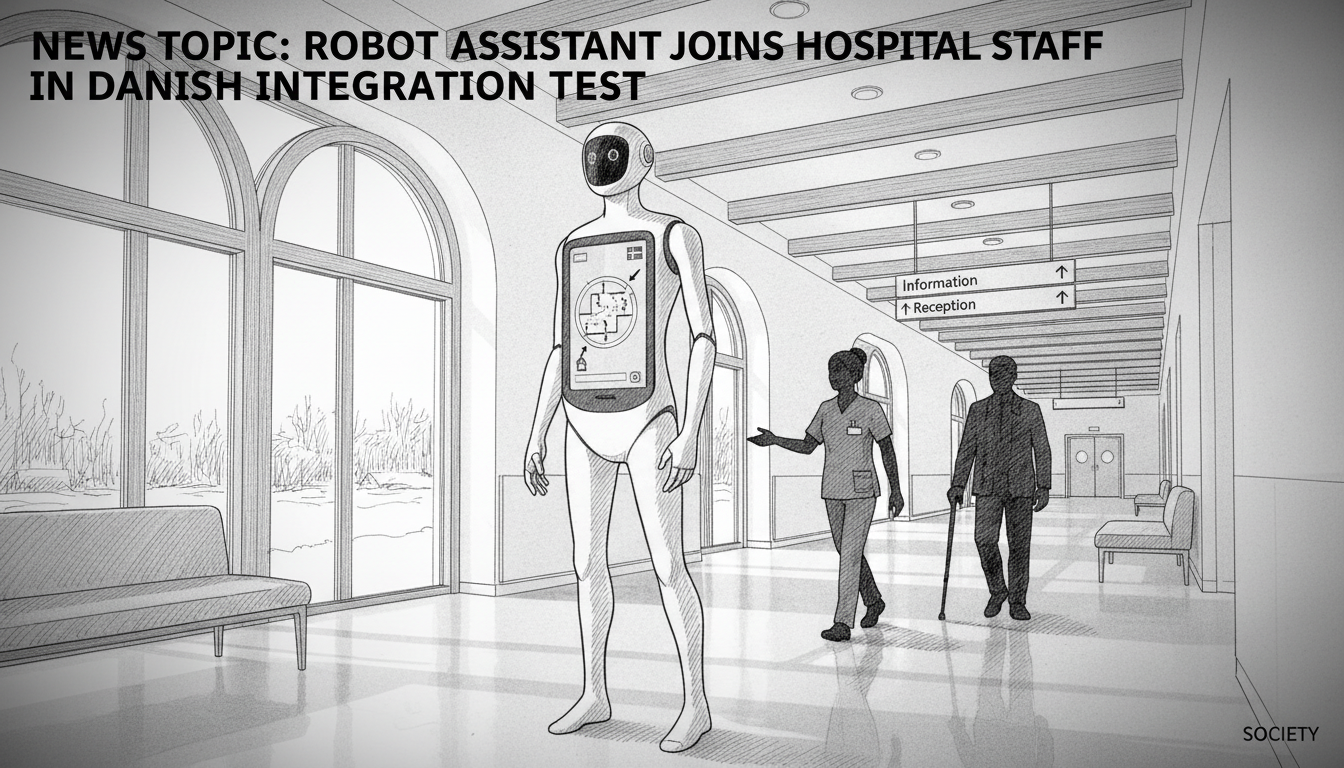A hospital in Sønderborg introduces a robotic assistant named Hugo to help patients navigate its corridors. This HospiBot greets visitors and provides directions throughout the medical facility. The trial represents Denmark's ongoing exploration of automation within public services.
Hanne Hovlykke Gregersen, a volunteer at the hospital, acknowledges Hugo's practical benefits while noting technical limitations. The robot sometimes struggles with the local Sønderjysk dialect, she observes. This highlights the challenge of implementing technology in regions with strong linguistic traditions.
Patient Bo Christensen Sylvester experienced mixed feelings after Hugo helped him navigate the hospital. While appreciating the directional assistance, he described the interaction as somewhat impersonal. Many patients clearly value human contact during stressful medical visits.
Research from Aalborg University suggests such robots will become more common in healthcare settings. Kristina Tornbjerg Eriksen, who studies human-robot collaboration, emphasizes that automation should supplement rather than replace staff. Her research indicates robots work best when handling routine tasks that free up human workers.
Project leader Sabine Paasch Olsen stresses that Hugo aims to support rather than replace the hospital's volunteer corps. In areas with fewer volunteers, such robotic assistants could provide consistent service. This approach reflects Denmark's careful balance between technological advancement and human-centered care.
The Danish welfare system increasingly integrates technology to maintain service quality amid staffing challenges. This hospital trial demonstrates how automation might address practical needs while preserving essential human elements. Denmark's social policy typically prioritizes both efficiency and personal connection in public services.
Robots cannot perform the complex care tasks, professional judgments, and relational work that hospital staff handle daily. This limitation becomes particularly important in Denmark's healthcare system, which emphasizes comprehensive patient support. The country's immigration policy and integration efforts similarly stress the value of human interaction.
Copenhagen integration specialists note that technology-assisted services must accommodate diverse user needs. The Sønderborg experiment shows how robotic assistance might eventually help non-Danish speakers navigate complex institutions. Such developments could complement Denmark's broader social policy goals.
The trial continues through August, after which hospital administrators will decide whether Hugo becomes a permanent staff member. Their evaluation will consider both practical functionality and patient responses. This careful assessment process reflects Denmark's methodical approach to technological adoption in public services.

